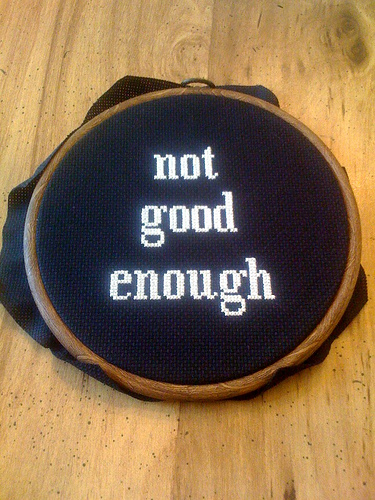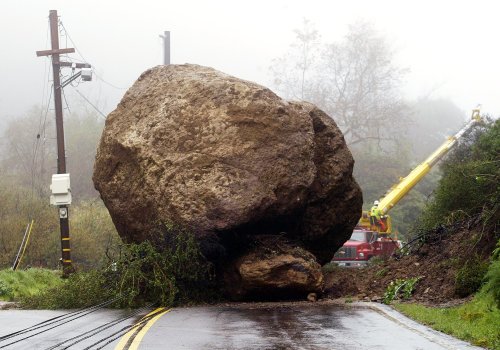The Positive Side of Rejection
Today’s guest post is from author and blogger Angela Ackerman, whose insightful wisdom can be found at The Bookshelf Muse.
I bet a few eyebrows jumped up at reading the title of this post. In fact, right now people are crossing their arms and expelling a bitter laugh or two as they recall the soul-eating, BP-oil-spill darkness that accompanied their last rejection. Something positive? What, it came in an email so no trees had to die to deliver it? Come on, Angela, get real.
Okay, first of all, saving trees is a good thing. 🙂 But that’s not what I mean. All rejections, paper or otherwise, have a positive side.
1) A rejection means you’re in the game. Lots of people talk about getting a novel published…someday. They cite the dream of holding a book in their hands (or on kindle) that will touch other people’s lives. Well, talk is cheap. You, my friend, are not content with talking–you are a DOER. Getting an R means you worked your ass off to learn to write well and then took the leap to submit…something that should be celebrated!
2) A rejection means you believe in yourself and your work. Unless you’re a masochist, a rejection’s cheese-grater-on-brain feeling isn’t something one braves just for giggles. Everyone in this business knows publication is not for the faint of heart. When on submission, you lay yourself bare and say, “This is my work. I believe in it, and so should you.” The fact that you are willing to take the rejection hit SHOWS how much passion you have. How many other people can say they feel passion for their jobs?
3) A rejection is an opportunity to learn. Each rejection, even a form, is a chance to re-evaluate what you’re presenting. Look at the materials sent to this agent or editor and put yourself in their shoes. Why did they pass on this? Is the query streamlined and voice-y? Does it contain a compelling hook? Is the writing solid in the sample you sent along–strong characterization, interesting premise, hooks to inspire the reader to keep reading through those first pages? Or are you relying on description or nice writing to pull them in and keep them going until you get to the good part on page 10?
Let’s say you decide the query is solid and the writing sample’s a shining monument to awesome. Ask yourself then if you targeted this person effectively. How much research did you do before hitting send? How well did you know their interests, their recent projects and authors’ work? Did you see they take YA in a forum somewhere and so fired off a query, without checking current websites/blogs/interviews to really understand what projects they want most?
4) A rejection is a challenge to do better. Writers are fighters. If we weren’t, we’d choose some other profession with friendlier odds. Take the frustration over a rejection and challenge yourself to prove the rejecter wrong. Turn a critical, honest eye to the material, evaluate, and PAY ATTENTION. Is there an above question that makes you feel a momentary flutter of doubt? If there is, chances are this is an area to focus on before sending your work out again. Let the fire of wanting to prove yourself be the motivation to strive for your very best. Don’t settle for “feeling pretty good about” any aspect of your work or query. Be satisfied only when you feel you have done everything in your power to ensure success.
Final Thoughts
Rejections come with the territory, so try not to take them personally. Quality work and careful targeting are key, but it still comes down to a personal preference, something out of the writer’s control. Submission is like marriage, and it takes time to find the right person who will fall in love with your work.
Make it your goal to feel confident about your work and the rest will take care of itself!
 Angela Ackerman writes on the darker side of MG & YA and is represented by Jill Corcoran of The Herman Agency. She blogs at The Bookshelf Muse, a description resource hub for writers. Her book, The Emotion Thesaurus: A Writer’s Guide to Character Expression is scheduled for release in May 2012.
Angela Ackerman writes on the darker side of MG & YA and is represented by Jill Corcoran of The Herman Agency. She blogs at The Bookshelf Muse, a description resource hub for writers. Her book, The Emotion Thesaurus: A Writer’s Guide to Character Expression is scheduled for release in May 2012.












A very positive spin and outlook. After rejection there’s always self-pub. We hope to help some with that journey.
I love “a rejection’s cheese-grater-on-brain feeling isn’t something one braves just for giggles.” So true. I feel like I’ve found a kindred spirit with you, Angela. I’m always looking for the silver lining. Thanks for so many positive reasons to cherish rejection!
Glad you liked this post, Mark and Carol! Too often we focus on the negatives of rejection, and forget to celebrate the bravery it takes to put ourselves out there.
Happy writing and submitting!
Angela
Angela, this is an excellent post and one we need to keep and reread often. I especially like “Rejection comes with the territory….” Thank you.
This is so fitting with Performers too! It’s such a learning to make rejection into a positive and I believe once you do it loses it’s power over you. I will re post this to my tribe too. Thanks!
A rejection is better than no response at all. If I get a rejection, I’m holding a party.
This is the second blog post I read today on rejection. You covered everything positive about rejection. Well said! 🙂
Hi Jude! Glad this was helpful. I try to think about all of these things when I get down about rejection. 🙂
Bed, I agree! This fits for so many creative types. Well said.
thanks Wendy! Keeping a positive attitude is so important, otherwise rejection can pull us down a negative path and really mess with our creativity and productivity.
A very important post – thank you! I would add to your #4 section to say that along the lines of the ‘flutter of doubt’ you describe when reading your manuscript over critically, you should also pay attention to which comments in the rejection letter you are most angry about. You know the ones – where you make an audible ‘tsa’ sound or say ‘come on’ out loud to the cat? Those awful, misguided, annoying comments are often the ones which, upon further investigation, hold the secret to making your manuscript great instead of good.
Hallelujah! Thanks Angela. You’ve finally given meaning to the ‘rejection collection’ I’ve started. Thanks for the encouragement as I get ready to send out the next wave of queries for my first novel.
Fingers crossed,
Anne
Yes, I can relate to this. My rejection was not, however, a rejection to publish my work. It came from the National Endowment for the Humanities…TWICE…as I painstakingly completed my 3-part grant application for a one-year research fellowship. Both times I responded with frustration and anger at the lack of knowledge and depth of understanding of the majority of my adjudicators. There were a few, though, who gave thoughtful criticism which has helped me redefine my goals and work on them on my own time and my own dime. If anything, by narrowing my scope I have become more of an expert on particulars of the research which few if any have focused on to date.
Wow, what a wonderful post! Thank you so much for this. As a newbie author (biting fingernails anxiously) this really speaks to me and I will definitely post this on my “Positivity Wall”
Paula, I totally agree. If a personal rejection bothers us or makes us angry, the best thing we can do is look closer and challenge ourselves on what is said by putting ourselves in the editor or agent’s shoes and see the book from their perspective. If they took the time to give personal feedback, it should not be dismissed outright. Sometimes it might be a personal choice thing, but other times it’s a clue to an aspect that may need work.
Anne, best of luck!
Debra, it sounds like you have a ‘learner’ attitude, and you are doing what it takes to evolve your process for your target market…the grant comittee. This will eventually lead to success, I know it! Keep at it and Good luck!
I supposed I either have a massive eager or one killer drive. I’ve never seen as a rejection as being a sign that I am not good enough. As much as I believe I need to improve, I do believe in my work and my voice and I want to be in the game.
This was a terrific and affirming post.
Thanks
I think the whole agent-pubisher-ditributer way of getting into print is a waste of time for most of us. Consider these two facts. Only 30% of the books published actually make any money. J.K.Rollings was rejected by multiple publishers. Their judgement seems seems to be awful. And yet we stand in lines at workshops to have these people pass judgement on our work. We toss our book into their “slush-pile”. We wait at the mailbox for months and are disappointed in the end. It doesn’t make sense to me.
I will say that magazines are more straightforward in dealing with writers.
We writers tend to forget that the agents and publishers are out there to make a buck and they don’t care about you or me, the individual writer. But we want them to, so much.
I’d rather pub using the e-book route and have the readers make the decision on my work. I realize that self-pub has its own difficulties, but you can get into print and if you have written a good book, you have a chance.
Tnx for many good words about an often painful subject. My favorite line? “… publication is not for the faint of heart.”
After numerous rejections in 2008, I went back to the computer and spent the next four years perfecting my novel. It was definitely an opportunity to learn. I never gave up, never gave in, fought to the last and believed in myself. Finally, it was picked up by a fantastic publishing house. This October, a novel that took ten years to write will see the light of day. TELEVENGE. Thank God for the rejections. Like sandpaper, they forced me to polish the story to a smooth finish.